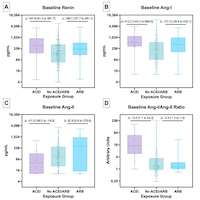COVID-19 Variant Classifications and Definitions
cdc.gov
Genetic variants of SARS-CoV-2 have been emerging and circulating around the world throughout the COVID-19 pandemic.
Viral mutations and variants in the United States are routinely monitored through sequence-based surveillance, laboratory studies, and epidemiological investigations.
A US government SARS-CoV-2 Interagency Group (SIG) developed a Variant Classification scheme that defines three classes of SARS-CoV-2 variants:
– Variant of Interest
– Variant of Concern
– Variant of High Consequence
The B.1.1.7 (Alpha), B.1.351 (Beta), B.1.617.2 (Delta), and P.1 (Gamma) variants circulating in the United States are classified as variants of concern.
Laboratory studies suggest specific monoclonal antibody treatments may be less effective for treating cases of COVID-19 caused by variants with certain substitutions or combinations of substitutions in the spike protein.



















